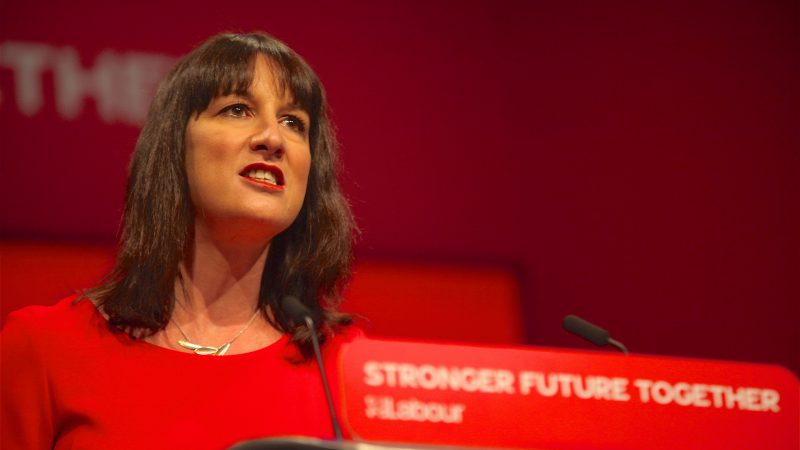
Behind the ‘smoke and mirrors’ of Rishi Sunak’s budget was the stark fact that the Chancellor has raised tax by the highest amount in a single year for almost three decades. Fertile ground, surely, for a Labour Party to hit home its message that the Budget represented “a Conservative tax cut on banks, frequent flyers and champagne, whilst increasing the burden on working people”.
But however impressive the response from the Shadow Chancellor, the Labour Party faces underlying challenges, which mean that simply being correct on the issues in the eyes of the electorate is unlikely to translate into that elusive, consistent poll lead.
Keir Starmer’s recent speech at Labour conference showed a level of recognition that Labour cannot just wait around for the Tories to decline. But whether or not Labour can gain a hearing from the electorate will depend on how the party can meet the three core challenges it faces, set out in the recently published report from Renaissance into Labour’s former voters.
The challenges are, firstly, that Labour lacks a clear identity about its primary purpose; secondly, that it still needs to do more to show it has a clear plan for prudent financial management, and, thirdly, that it must communicate its belief in a positive post-Brexit future for Britain.
Starmer’s speech was a noble bid to show that Labour shares the values and priorities of the British public: respect for hard work, personal responsibility, contribution and reciprocity, patriotism, law and order, security, equality of opportunity. The project for Labour now is to take that 90-minute speech and condense it into a very small number of clear and concise messages that meet the challenges set out by Renaissance and, crucially, to repeat these messages ad nauseum until the next election. This will require ruthless prioritisation and a resistance to sinking back into its comfort zones of climate change and the NHS – critically important topics but not messages that will regain the support the party needs.
What should these core messages be? The shadow cabinet’s primary objective must be to focus relentlessly on reminding the country of their Labour’s core identity – the party of work and good jobs. The Conservatives are seeking to occupy this ground, but Renaissance’s recent conversations with former Labour voters found that the Tories are the party of ‘fire and rehire’ and zero-hours contracts. Our report shows that these voters identify primarily as ‘working people’ who want dignity at work and good jobs for their kids – but they need to see Labour consistently show that it still represents that identity. In an era of flatlining wages, decarbonisation and technological change, Labour should hammer home the pro-worker, pro-business messaging of Rachel Reeves.
Secondly, the party must put Labour’s ‘value for money’ message front-and-centre. The public have made their minds up on austerity one way or another. Unfortunately for Labour, the party’s target audience seem to have bought the Cameronite argument that cuts were needed due to Labour spending, and therefore attacks on austerity simply remind voters of this. Labour politicians should point to the outcomes of Tory failure – rising crime and homelessness – rather than the austerity itself. Reeves will hope that her ‘Office Value for Money’ will help contrast Labour against a Conservative cabinet wasting taxpayer cash on crony contracts.
The third core message from Starmer’s speech must be that Labour is the party of security. Its summer slogan “under the Tories, criminals have never had it so good” should be used more. The public understandably feel less safe than ten years ago.
One final piece of the jigsaw is a Labour story about strengthening Britain itself. On the doorstep, voters may ‘talk local’ while at general elections they often ‘vote national’. The most recent majorities were, after all, won by national stories boiled down to the snappy messages of Boris Johnson’s “get Brexit done” and David Cameron’s “long-term economic plan”. Voters want politicians who “stand up for people like me”, but they also want politicians who – as Starmer has put it – “think big”.
Johnson regularly repeats vacuous phrases like “Global Britain” and “levelling up” to give the impression, rightly or wrongly, that he is on top of major, complex political issues. For Labour, there is a story about Britain staring it in the face, which pinpoints Tory failures. The need for a ‘fairer, more sustainable Britain’ is uncontentious, but the other major challenge of our time is to drive forward a more ‘resilient’ Britain.
The world has transformed since 1997 and liberal democracy is no longer the only game in town. Our supply chains and critical national infrastructure – from personal protective equipment to steel to nuclear energy – are ominously over-reliant on companies backed by an increasingly hostile Chinese state. Dirty money flows liberally through the city of London, and through Premier League football clubs, while American private equity firms seek to hover up weakened British firms without any attachment or commitment to supporting local jobs. Under the Tories, Britain increasingly looks like ‘knock-off Britain’, with the country now the European capital for hostile foreign takeovers of national assets.
Renaissance’s conversations suggest that former Labour voters back the “make, buy and sell more in Britain” pledge made by Rachel Reeves, even if the policy comes at a higher cost to the taxpayer. Yet a modern manufacturing renaissance becomes much more compelling when presented as part of a wider national mission to build a Britain that can stand more firmly on its own two feet in an increasingly uncertain world. In the middle of a supply chain crisis, this is the ‘big picture’ story that can help our party reconnect with those former Labour voters who Sunak is seeking to seduce.




More from LabourList
‘Reconciliation is not weakness. It is leadership’
‘Press regulation is the simplest test of whether Starmer will govern with integrity’
‘Winning was the easy part. Governing requires a different politics’